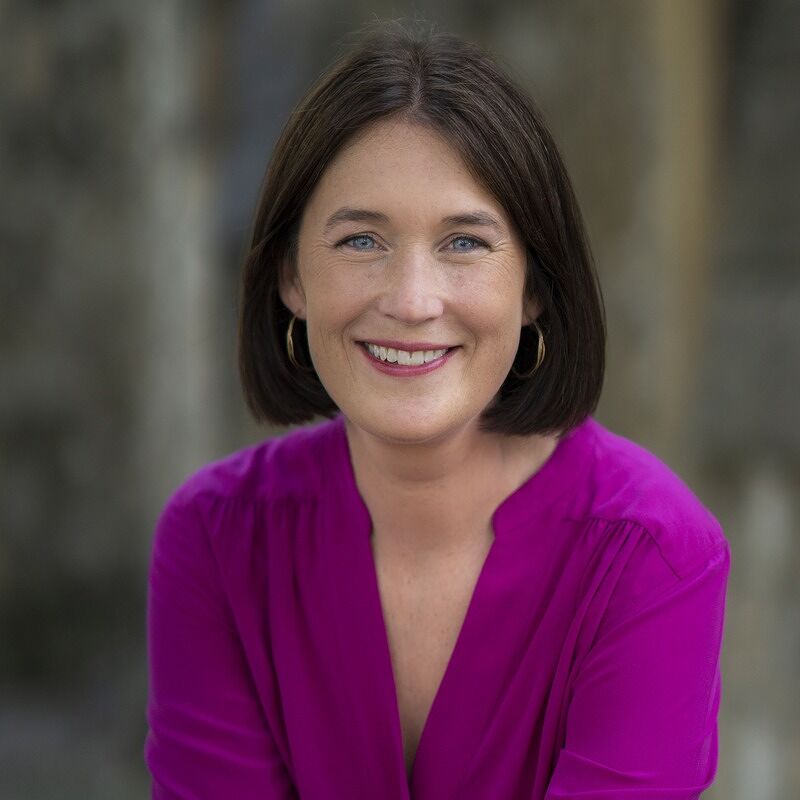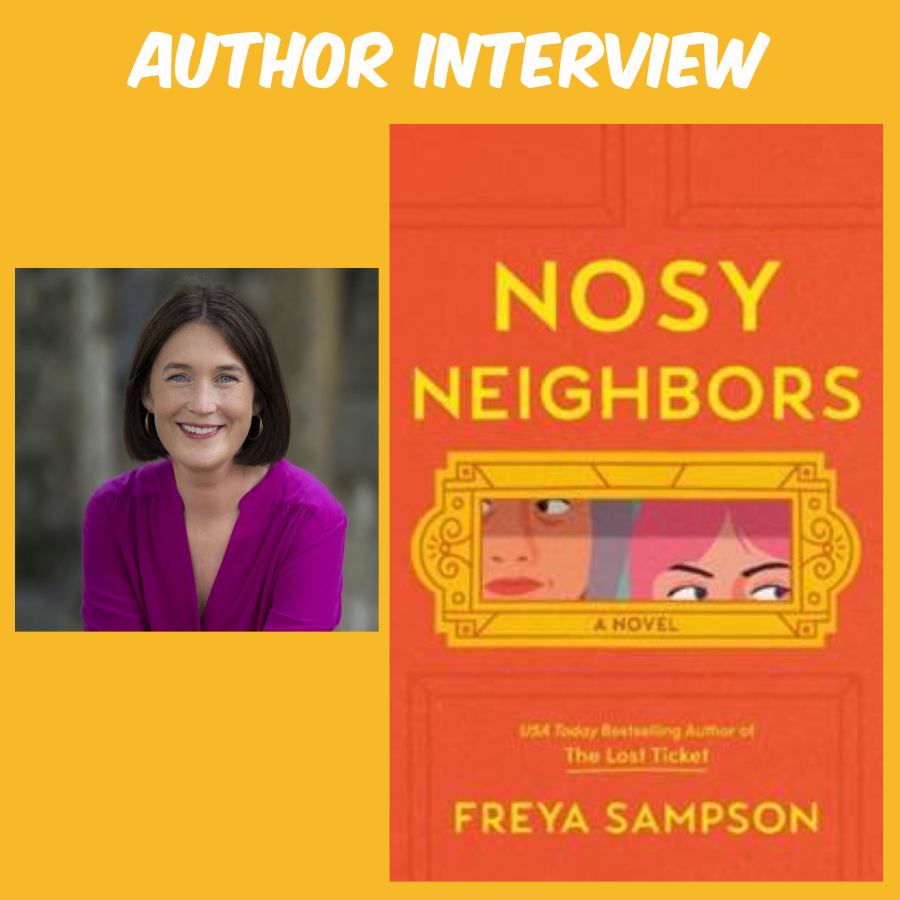Nosy Neighbors is perfect for cozy mystery aficionados and fans of Hulu’s, Only Murders in the Building. Welcome to Shelley House: a historic old apartment building in the quaint English town of Chalcot where 25-year-old Kat Bennett and 77-year-old Dorothy Darling reside. Kat and Dorothy are notorious enemies—Dorothy sees Kat as prickly and unapproachable, a punk with pink hair who prefers to keep to herself; Kat rolls her eyes at Dorothy, a cantankerous senior citizen who can’t seem to mind her own business and spends her days sternly reminding everyone in the building to mind the rules. When Kat and Dorothy receive word that Shelley House will be torn down and replaced by new condos, and that all its residents will be evicted, they’re devastated—but they won’t miss each other, or even their acquaintances in the building.
But then, their friendly neighbor, one who has been a vocal opponent of the demolition, is attacked inside his apartment. Kat and Dorothy begin to notice strange happenings and even break-ins at the apartment complex, and it quicky becomes apparent that trouble is afoot. The odd pair must work together to figure out who is behind the crimes at Shelley House before anyone else gets hurt. In the process, they may even learn to like each other—and to rally a neighborhood to save the home they hold so dear.
Below is the transcription of the lovely conversation Freya and I had about how feminism and found family are at the forefront of her latest novel.

How does feminism intertwine with Nosy Neighbors?
Nosy Neighbors tells the story of two neighbors-at-war, 77-year-old Dorothy Darling and 25-year-old Kat Bennett, who are both consumed by guilt from their pasts, and have allowed that guilt to drive them into their own self-imposed isolations. Without giving too much away, both women are tormented by what they perceive as failures in their traditional roles in a patriarchal society: for Dorothy that of being a ‘good mother’, and for Kat of being a ‘good daughter’. The story is about these two women becoming unlikely allies in the fight to save their home from a greedy capitalist landlord set on demolishing it for regeneration. But it’s also about how the power of female friendship, community and collective action help Kat and Dorothy to reassess the way they view their pasts, and move on from the guilt that has defined them both for far too long.
How can the sense of community help foster the acceptance of a bad hand life deals us as well as working toward a better future?
History has shown us that community is absolutely essential to survival. Our earliest ancestors wouldn’t have made it out of the caves if they hadn’t learned to live and work together, sharing skills, information and resources to keep themselves alive. Two million years later, science and technology make it possible for us to live much more isolated lives: you can survive perfectly adequately without stepping outside of your home or talking to another human being, as long as you have an internet connection and Deliveroo! Yet I believe that community is more important than ever, which is why it’s a theme I come back to time and again in my writing. In all my novels, it’s only when disparate, isolated individuals start to work with each other that they’re able to achieve their wider goals, be it saving their local library from closure in The Last Chance Library or fighting against neighborhood gentrification in Nosy Neighbors. And equally, it’s only when they open themselves up to human connection that my characters are able to overcome their personal demons and move on with their lives. So while we may not need a sense of community for our physical survival any more, I believe we do need it for our emotional survival, and for bringing about positive change in the world.
How does acceptance and/or forgiveness of others and oneself provide liberation?
One of the things I wanted to explore in Nosy Neighbors was the ways in which we allow our pasts to define us, and the sense of freedom that can come when we step away from those self-written narratives. Both of my main characters, Dorothy and Kat, have allowed their lives to be shaped by the stories they’ve told themselves about their own pasts, in particular the misplaced feelings of guilt which they both carry and which have led to them cutting themselves off from the world around them. The events of the story force them out of their self-imposed isolations and into an unlikely alliance to save their home and discover who is violently targeting their neighbors. In the process, they have to lower their defenses and share something of their pasts with each other. It’s only when they open themselves up to human connection that the two women are able to see their pasts in a new light, and with that acceptance comes the power to forgive themselves and rewrite their stories.
How important is found family within a community?
While I enjoy exploring the dynamics of biological family in my writing, I’m much more interested in the idea of ‘found family’: the community of people we actively seek out and choose to identify with, as opposed to the ones we’re part of simply by accident of birth. In all my books, my main characters come from families that are either absent or in some way toxic, and their personal growth almost always comes from the connections they make with the strangers who eventually become their support system. And whilst my stories focus on physical communities, such as neighbors within an apartment building, I think this is an area where the internet can be a hugely positive force. Until recently, ‘finding your tribe’ meant the people you could physically connect with. But thanks to the internet, people can now discover their found family of like-minded, supportive souls in places like the Feminist Book Club, even if that family is scattered across the globe.
Thanks for Freya for your time and talking to us about Nosy Neighbors – as we head into the end of summer, and the beginning of fall, let’s all remember to take some time and reflect on our connections with each other and with ourselves.

